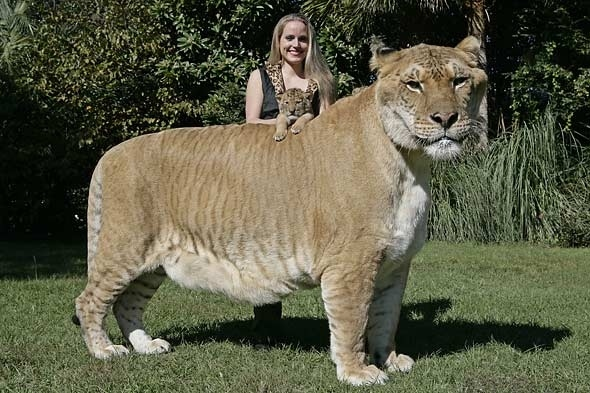Ever wondered why hybrids of different animal species are usually sterile? 🤔 It’s mostly due to genetic and biological differences between the species. Here’s the scoop:

Liger- lion and tigress hybrid (c)wikifur.com
Different chromosome numbers: Different species often have different numbers of chromosomes. For example, horses have 64 chromosomes, and donkeys have 62, giving mules (horse + donkey) 63 chromosomes. This odd number makes it tough for them to properly split during the creation of sex cells. 😬
Genetic mismatches: Even if two species have a similar number of chromosomes, their DNA can be so different that pairing up the chromosomes during sex cell creation can be problematic. This leads to unhealthy gametes. 🧬
Reproductive barriers: Species evolved in different environments and have unique reproductive mechanisms. Differences in reproductive organs, hormones, or timing of reproductive cycles can affect hybrid fertility. 🔄
Genetic incompatibility: Even if a hybrid is created, the genes from two different species might not work well together in development and physiological processes. This can cause issues in organ development, metabolism, or immune system function, affecting fertility. 🚫
Examples in nature: Think of mules (horse + donkey) and ligers (lion + tiger). Mules are almost always sterile due to their odd number of chromosomes. Ligers can sometimes be fertile, but their fertility is usually significantly reduced, and reproduction can be complicated. 🦓🦁
In short, hybrids are sterile because of complex biological barriers that help new species form and stay distinct. Nature is wild! 🌿🌍